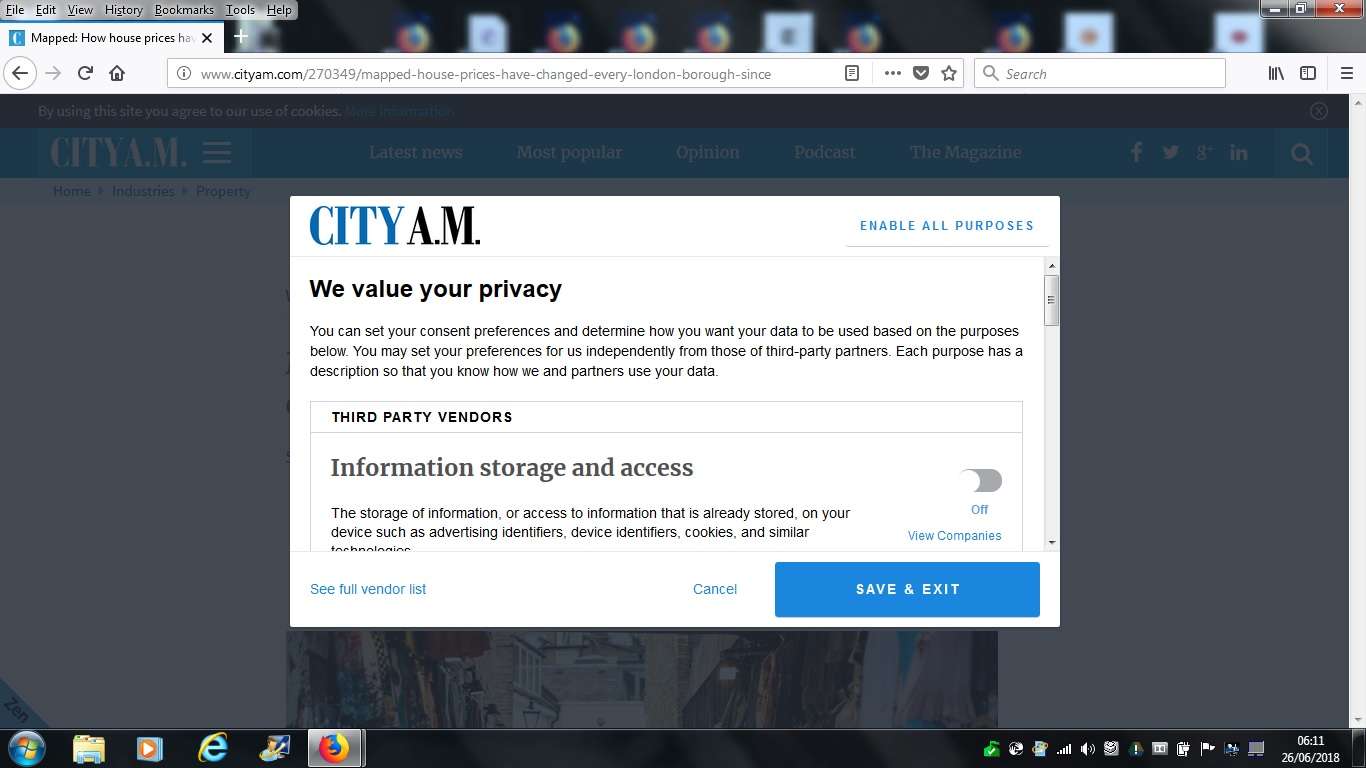choosing preferences on/off - 26th Jun 2018 5:36am
Im sure this will be obvious to most people who are au fait with computors , but it isnt to me ---- Since sites have started seeking you to agree to god knows what before you can open their site , Ive been referring to the usual option of 'further details' , and aim to NOT agree to giving permission for anything I dont have to ,apart from whats necessary for the site to function for me . Sounds easy , as you usually just have a box to click , but Ive seen plenty of sites where they deliberately try to mislead you into accepting something by the clicking of an apparently NO choice actually being a YES one , Im just not sure what my click means This eg below is a common version , now which option do I choose which means I only want to agree to the essentials and no other rubbish, because I have no idea what preference is being referred to by the 'on' and 'off' ?

